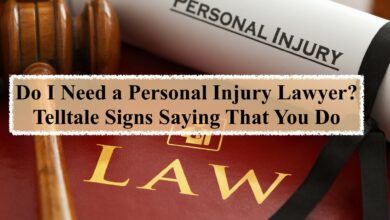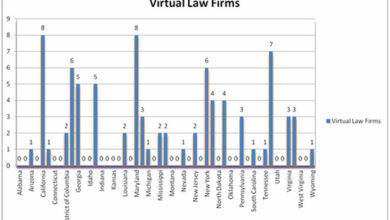A Comprehensive Guide to Choosing the Best Lawyer
When faced with legal issues, finding the right lawyer can make all the difference. Whether you require legal assistance for personal matters or business-related concerns, having a skilled and trustworthy lawyer by your side can significantly impact the outcome of your case. However, with numerous lawyers to choose from, selecting the best one can be a daunting task. This comprehensive guide aims to provide valuable insights and practical tips to help you navigate through the process of choosing the best lawyer for your specific needs.
1. Identify Your Legal Needs
The first step in finding the best lawyer is to identify your specific legal needs. Different lawyers specialize in various areas of law, so understanding your requirements will help narrow down your search. Consider the following questions:
- What type of legal issue are you facing?
- Do you need a lawyer for personal matters, such as divorce or estate planning, or for business-related concerns, such as contract disputes or intellectual property?
- Is it a one-time legal consultation or an ongoing legal representation?
Once you have a clear understanding of your needs, you can proceed with finding a lawyer who specializes in the relevant area of law.
2. Research Potential Lawyers
Research is crucial when it comes to selecting the best lawyer. Start by gathering a list of potential lawyers who specialize in the area of law that matches your needs. Here are some effective ways to conduct your research:
- Seek recommendations from friends, family, or colleagues who have had positive experiences with lawyers in the past.
- Use online directories and legal referral services to find lawyers in your area.
- Check the websites and online profiles of potential lawyers to learn more about their experience, expertise, and track record.
- Read online reviews and testimonials from previous clients to gauge the reputation and quality of service provided by each lawyer.
By conducting thorough research, you can create a shortlist of potential lawyers who seem to meet your requirements.
3. Evaluate Experience and Expertise
Experience and expertise are crucial factors to consider when choosing a lawyer. Look for lawyers who have a solid track record in handling cases similar to yours. Consider the following when evaluating a lawyer’s experience and expertise:
- How long have they been practicing law?
- Have they handled cases similar to yours in the past?
- What is their success rate in resolving cases?
- Do they have any specialized certifications or additional qualifications in their area of expertise?
By evaluating a lawyer’s experience and expertise, you can ensure that they have the necessary skills and knowledge to handle your case effectively.
4. Assess Reputation and Professionalism
Reputation and professionalism are essential qualities to look for in a lawyer. A lawyer’s reputation can provide insights into their ethics, credibility, and relationship with clients and peers. Here are some ways to assess a lawyer’s reputation and professionalism:
- Check if the lawyer is a member of reputable legal organizations or associations.
- Research any disciplinary actions or complaints filed against the lawyer.
- Consider the lawyer’s reputation among their peers and within the legal community.
- Observe the lawyer’s communication skills, responsiveness, and willingness to listen to your concerns during the initial consultation.
A lawyer with a strong reputation and professionalism is more likely to provide you with quality legal representation and a positive client experience.
5. Consider the Lawyer’s Availability
Availability is a crucial aspect to consider when choosing a lawyer. You want a lawyer who is accessible and responsive to your needs throughout the legal process. Consider the following factors:
- Does the lawyer have a busy caseload that may affect their availability?
- Would you prefer a lawyer who works individually or as part of a team?
- What is the lawyer’s preferred method of communication?
- Will the lawyer be available for in-person meetings or consultations?
It is important to choose a lawyer who can dedicate the necessary time and attention to your case.
6. Discuss Fees and Billing Structure
Before finalizing your decision, discuss the lawyer’s fees and billing structure. Understanding the financial aspect of hiring a lawyer is crucial to avoid any unexpected surprises. Consider the following:
- Does the lawyer charge an hourly rate or a flat fee?
- Are there any additional costs such as court fees or administrative expenses?
- What is the lawyer’s policy regarding billing and payment?
- Is there a possibility of a contingency fee arrangement?
By discussing the fees and billing structure upfront, you can ensure that you are comfortable with the financial aspect of hiring a lawyer.
7. Seek Initial Consultations
Once you have narrowed down your list of potential lawyers, schedule initial consultations with each of them. Most lawyers offer free or low-cost initial consultations to discuss your case and assess whether they are the right fit for you. During the consultation, consider the following:
- Does the lawyer have a good understanding of your legal issue?
- Do they provide clear and concise explanations of the legal process and potential outcomes?
- Are they attentive and genuinely interested in helping you?
- Do they have a realistic assessment of your case and potential strategies?
Seeking initial consultations allows you to evaluate the lawyer’s communication style, expertise, and compatibility with your needs.
8. Trust Your Gut Feeling
While objective factors such as experience and expertise are crucial, it is equally important to trust your gut feeling when choosing a lawyer. Your lawyer should be someone you feel comfortable with and can trust to handle your case effectively. Consider your overall impression of each lawyer:
- Did the lawyer make you feel at ease during the consultation?
- Do you feel confident in their abilities to represent your interests?
- Do you feel that they genuinely care about your case?
Choosing a lawyer you feel comfortable with will ensure effective communication and a better working relationship throughout your legal proceedings.
Conclusion
Choosing the best lawyer for your legal needs requires careful consideration and research. By identifying your legal needs, researching potential lawyers, evaluating experience and expertise, assessing reputation and professionalism, considering availability, discussing fees and billing structure, seeking initial consultations, and trusting your gut feeling, you can make an informed decision. Remember, a good lawyer can greatly impact the outcome of your case, so take the time to choose wisely.
FAQs
1. How do I know if I need a lawyer?
If you are facing legal issues that you are unsure how to handle, it is advisable to consult with a lawyer. They can provide guidance, explain your rights, and represent you if necessary.
2. What should I bring to an initial consultation with a lawyer?
It is helpful to bring any relevant documents or information related to your case, such as contracts, correspondence, or legal notices. This will enable the lawyer to assess your situation more accurately.
3. How much does hiring a lawyer cost?
The cost of hiring a lawyer varies depending on various factors, including the complexity of your case, the lawyer’s experience, and the billing structure. It is important to discuss fees and billing arrangements upfront.
4. Can I change lawyers if I am not satisfied?
Yes, you have the right to change lawyers if you are not satisfied with their services. However, it is advisable to communicate your concerns with your current lawyer first to see if the issues can be resolved.
5. Can I represent myself instead of hiring a lawyer?
While it is possible to represent yourself in legal matters, it is generally not recommended, especially for complex cases. A lawyer’s expertise and knowledge of the legal system can greatly increase your chances of a favorable outcome.
Summary
Choosing the right lawyer is a vital step in resolving your legal matters successfully. By identifying your legal needs, researching potential lawyers, evaluating experience and expertise, assessing reputation and professionalism, considering availability, discussing fees and billing structure, seeking initial consultations, and trusting your gut feeling, you can find the best lawyer for your specific requirements. Remember to take the time to make an informed decision, as a good lawyer can significantly impact the outcome of your case.









